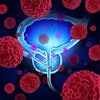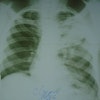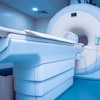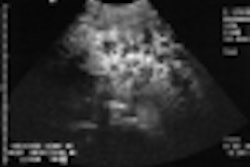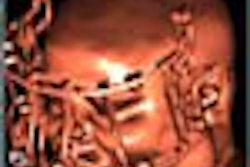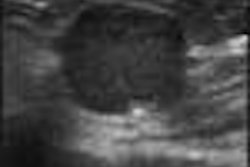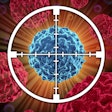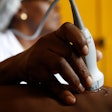LONDON - Radiologists may be able to image genes one day, enabling clinicians to design therapies aimed at specific types of cancer, according to a presentation at the 2001 United Kingdom Radiological Congress (UKRC) on Tuesday.
"Can we predict diseases early and can we use these [predictions] to accurately assess treatment? Preliminary studies show promise that [we can]," said Professor Bob Ott of the Royal Marsden Hospital and Institute of Cancer Research in Sutton, U.K.
The key to genetic imaging is optical imaging, which can reveal the cellular structure of tumors -- something conventional imaging cannot do. One technique involves releasing an encapsulated fluorescent dye that interacts with a specific gene. Radioisotope genetic tracers are then used to differentiate between different genetic expressions in a tumor, allowing radiologists to determine the specific genetic basis for a cancer or pre-cancer.
Professor Michael Steel of the Royal Marsden National Health Service Trust, in St. Andrews, Scotland, said genetic imaging is especially promising because patient consultations are highly fallible for assessing cancer risk. Since patients can't possibly know their full family medical history -- including potential latent medical problems passed down from previous generations -- the information can't be trusted, he said.
"We need to image genes in order to identify how we can help [patients]," Steel said. "The actual step-by-step progression [of cancer] is not entirely clear. The genetic evolution will help us understand the pathological evolution."
Genetic imaging would also prove cost-effective, as it would enable physicians to target screening efforts at those in high-risk populations and focus medical resources on them, he said.
One area where genetics and imaging may play a vital role is in detecting fast-growing breast cancers, especially when BRCA gene mutations are present. Dr. Roz Eeles from the Royal Marsden NHS Trust in Sutton said that determining a genetic basis for breast cancer would enable physicians to closely follow those at high risk.
Finally, genetic imaging may alter the course of treatment for women who have a family history of breast cancer. Eeles cited a case in the U.K. where a woman scheduled for prophylactic mastectomy canceled her surgery after participating in an imaging trial that showed she was not carrying her family’s breast cancer gene.
However, Ott cautioned that genetic imaging research is still in its infancy. Successful results in animals don't guarantee success in humans, he said, but researchers remain hopeful.
"If any of this works, there will be far-reaching consequences for diagnosis and treatment," Ott said.
By Leslie FarnsworthAuntMinnie.com contributing writer
May 23, 2001
Related Reading
British radiology societies join forces for first UKRC, May 18, 2001
MRI may be best diagnostic option for women at high risk of breast cancer, May 5, 2001
Gene profiling could refine breast imaging, March 22, 2001
Click here to post your comments about this story. Please include the headline of the article in your message
Copyright © 2001 AuntMinnie.com
